Multitasking Destroys Focus: Science Reveals the Truth
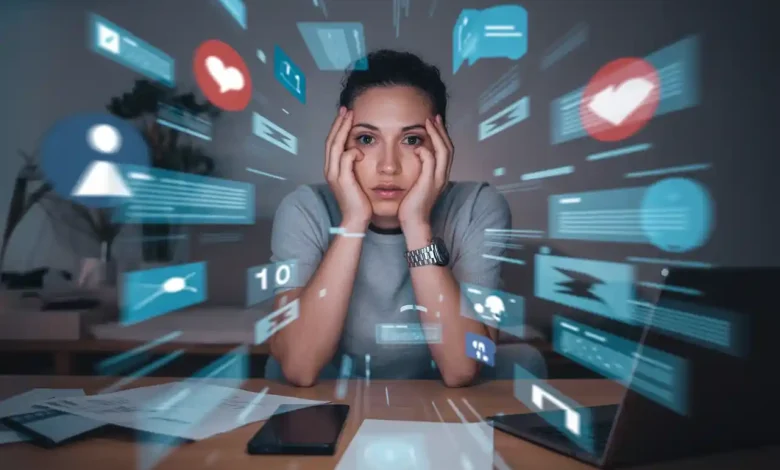
INTRODUCTION
Focus is the foundation of deep learning, high productivity, and emotional well-being. In today’s fast-paced world, the pressure to do more in less time is everywhere. Many people believe that juggling several tasks at once is a sign of efficiency and modern skill. We answer emails while attending meetings, scroll through social media while watching TV, and try to study with music and notifications buzzing in the background. This constant busyness can feel productive, but science tells a different story.
Our brains are not designed to handle multiple demanding tasks at the same time. What we call multitasking is actually rapid task switching, which drains mental energy and scatters our attention. Each switch leaves behind “attention residue,” making it harder to fully engage with the next task.
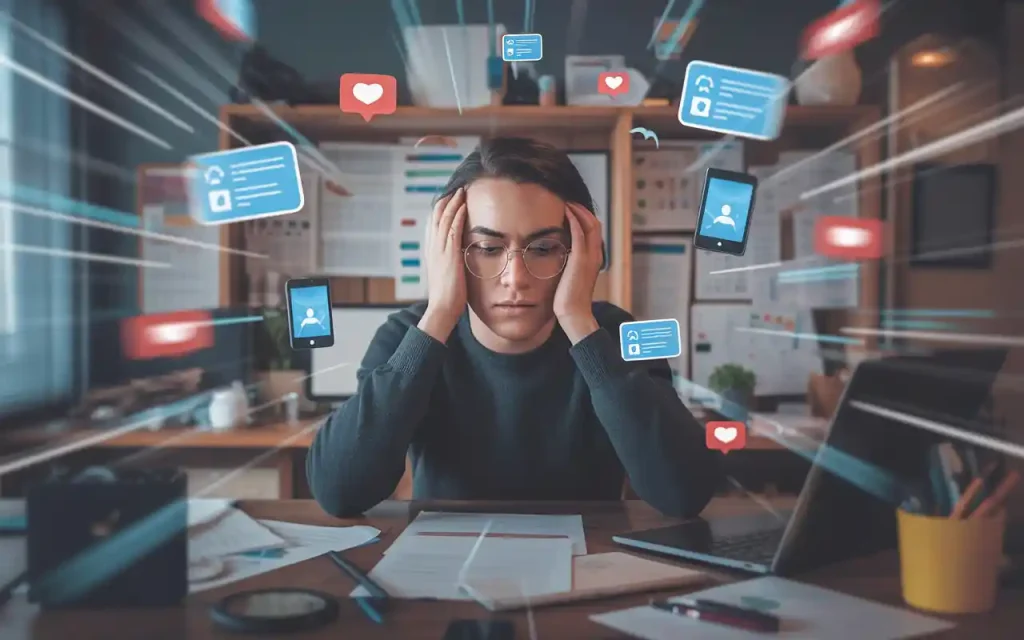
Over time, this habit can make it difficult to concentrate, remember important details, and even enjoy simple moments of rest. The myth of multitasking has become so common that many people don’t realize it’s quietly eroding their ability to focus, learn, and connect with others
Understanding the real impact of multitasking is more important than ever. By learning how multitasking affects your focus, memory, creativity, and relationships, you can make better choices for your mind and your life. Let’s explore what science reveals about the hidden costs of multitasking—and how you can reclaim your focus as your greatest superpower
What the Science Says
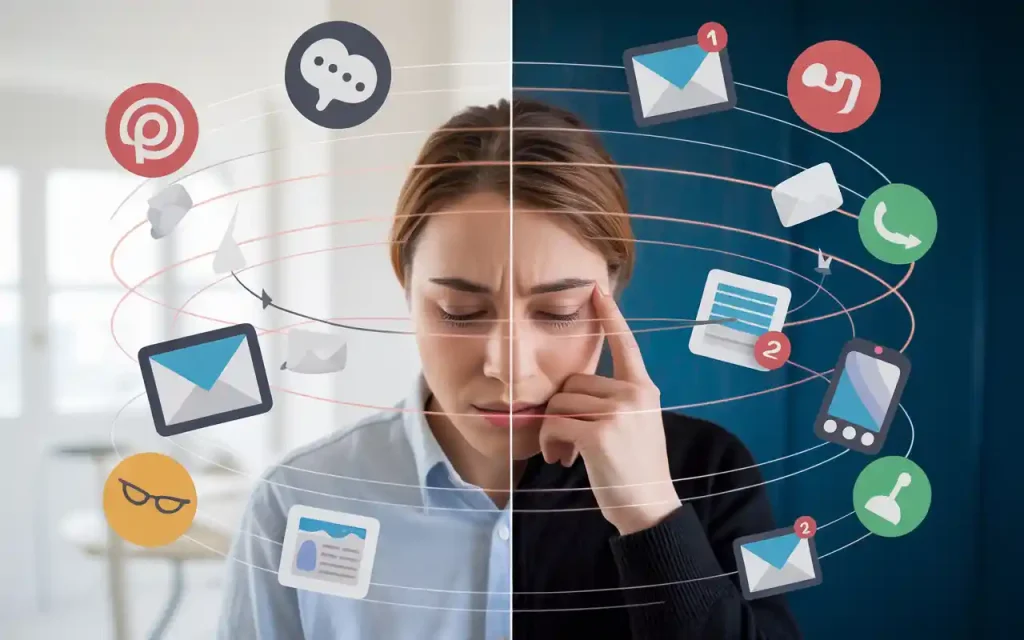
Focus is Lost When You Multitask
When you multitask, your brain does not truly handle multiple tasks at once. Instead, it rapidly switches between tasks, a process called “task switching.” This constant switching drains your mental energy and makes it difficult to focus deeply on any one thing.
- Attention residue: After switching tasks, your mind lingers on the previous task, making it hard to fully engage with the new one.
- Reduced comprehension: Even simple multitasking, like listening to music with lyrics while reading, can lower your understanding and memory.
- Increased distractibility: Over time, your brain becomes used to being distracted, making it harder to concentrate even when you want to focus.
- Longer recovery time: Each switch requires your brain to reset, which slows you down and increases the chance of mistakes.
Real-Life Example
Imagine trying to write an important email while replying to text messages and checking social media. Each interruption pulls your attention away, and it takes longer to finish the email. You may also forget important details or make errors.
Focus and Productivity Drop
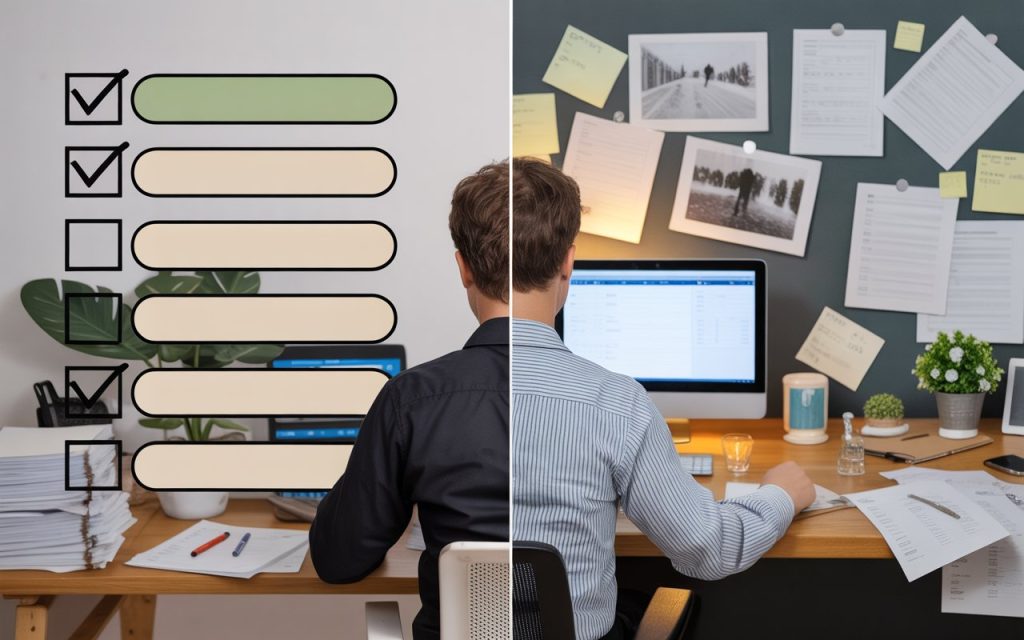
Research shows that multitasking does not help you get more done. In fact, it often leads to the opposite.
- Productivity loss: Studies show multitasking can lower productivity by up to 40 percent.
- More mistakes: Your brain is not fully engaged with any one task, so errors increase.
- Longer completion times: Even simple tasks take longer because your focus is split.
- Lower work quality: The quality of your work drops when you cannot give your full attention to one thing.
Workplace Impact
In a work setting, multitasking can lead to missed deadlines, poor communication, and lower job satisfaction. Teams that focus together are more productive and creative.
Focus and the Brain
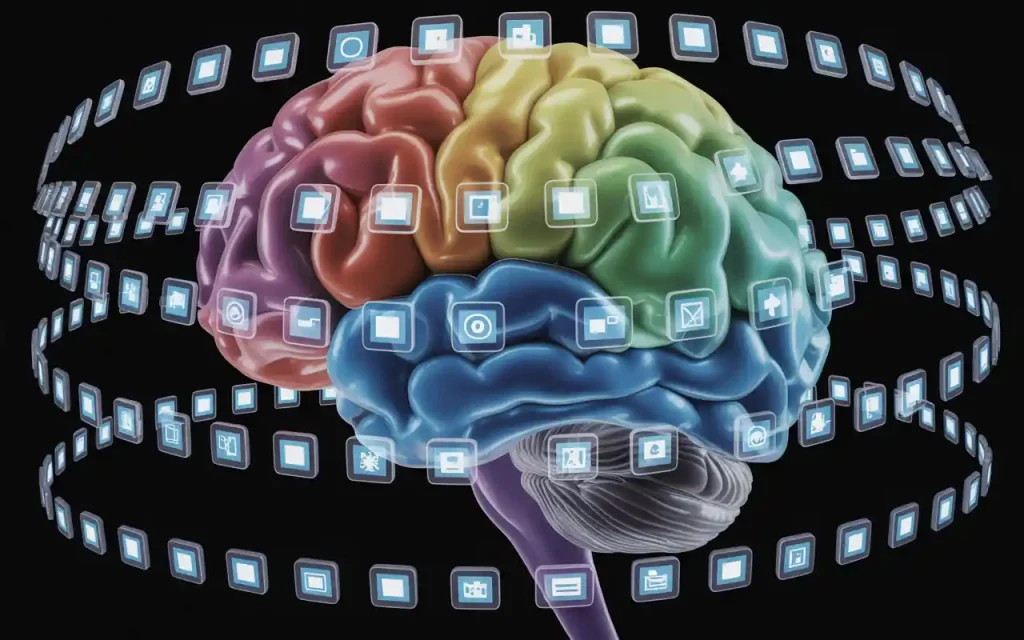
Multitasking puts a heavy load on your brain’s executive functions, which are responsible for managing attention, planning, and decision-making.
- Brain inefficiency: High multitaskers use more of their brain to complete the same task, making their brains work less efficiently.
- Weaker filtering: Chronic multitasking can change how your brain filters out distractions, making it harder to focus in the future.
- Reduced gray matter: Studies show that heavy multitaskers have less gray matter in the anterior cingulate cortex, a part of the brain involved in focus and emotional control.
Brain Health Over Time
If you multitask often, your brain may become less able to filter out distractions, making deep focus almost impossible. This can affect your ability to learn, remember, and make decisions.
Focus and Mental Health
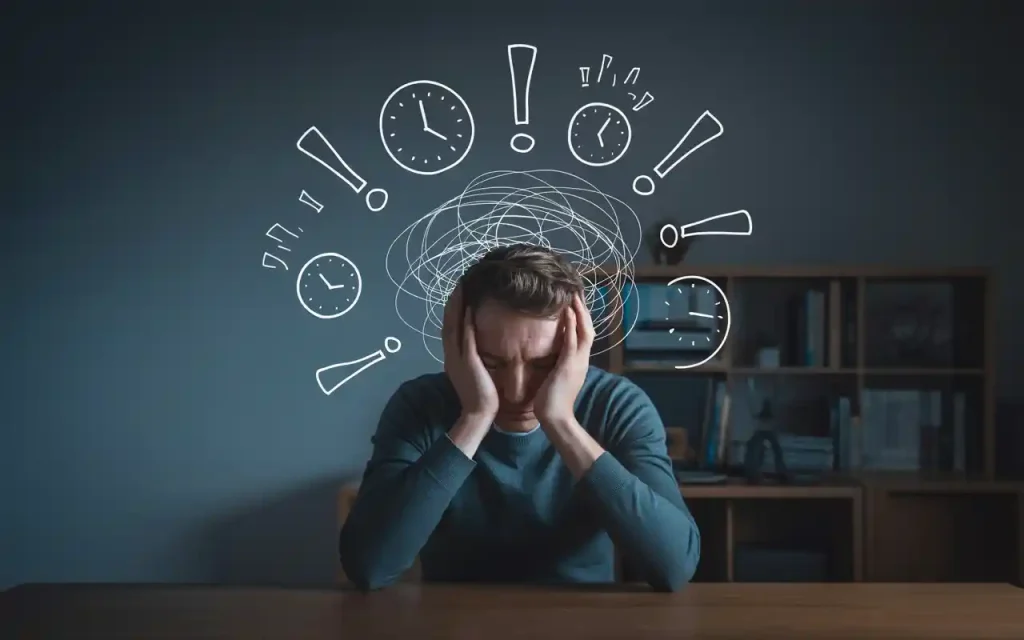
Focus and Stress
Trying to manage many tasks at once increases stress, leading to mental fatigue and burnout.
- Raised stress hormones: Multitasking raises cortisol, the stress hormone, making you feel anxious and overwhelmed.
- Decision fatigue: Constantly switching tasks can make even small choices feel exhausting.
- Sleep problems: Digital multitasking, especially with screens and social media, disrupts sleep and increases the risk of anxiety and depression.
- Burnout risk: Over time, the mental load of multitasking can lead to burnout, making it hard to enjoy work or life.
Signs of Stress from Multitasking
- Trouble sleeping
- Feeling anxious or irritable
- Difficulty relaxing, even during downtime
Focus and Emotional Well-being
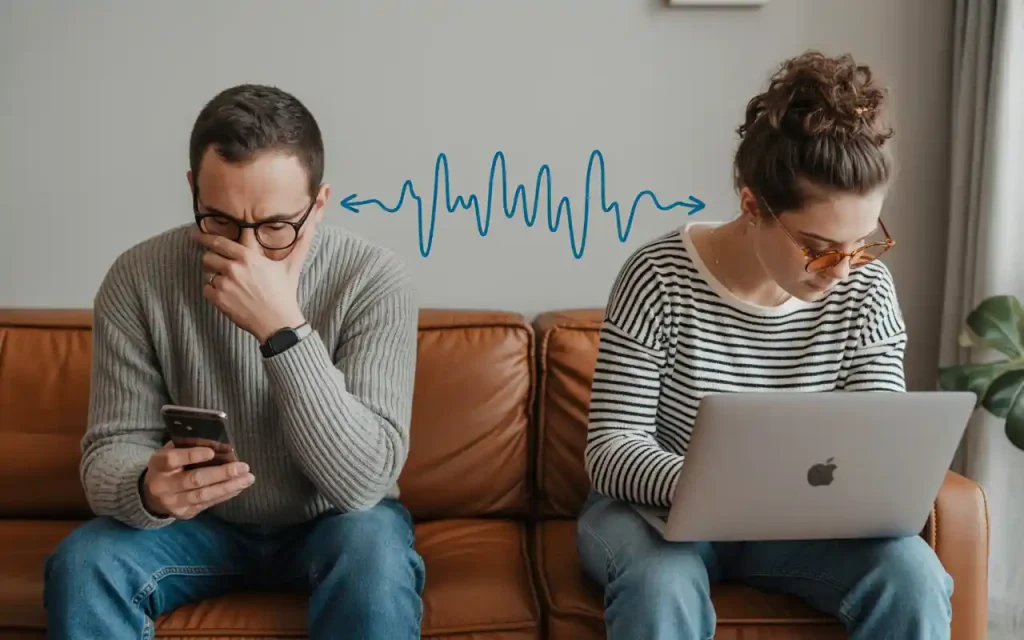
Multitasking with digital devices, like using your phone, laptop, and TV at the same time, is linked to lower brain density in areas that control empathy and emotional regulation.
- Emotional instability: People who multitask often are more likely to feel moody or irritable.
- Difficulty connecting: Multitasking can make it harder to connect with others and manage your emotions.
- Less enjoyment: It becomes harder to relax and enjoy downtime, as your mind is always “on” and jumping between thoughts.
Impact on Daily Life
You may find it harder to enjoy simple pleasures, like reading a book or having a conversation, because your mind is used to constant stimulation.
Focus and Memory
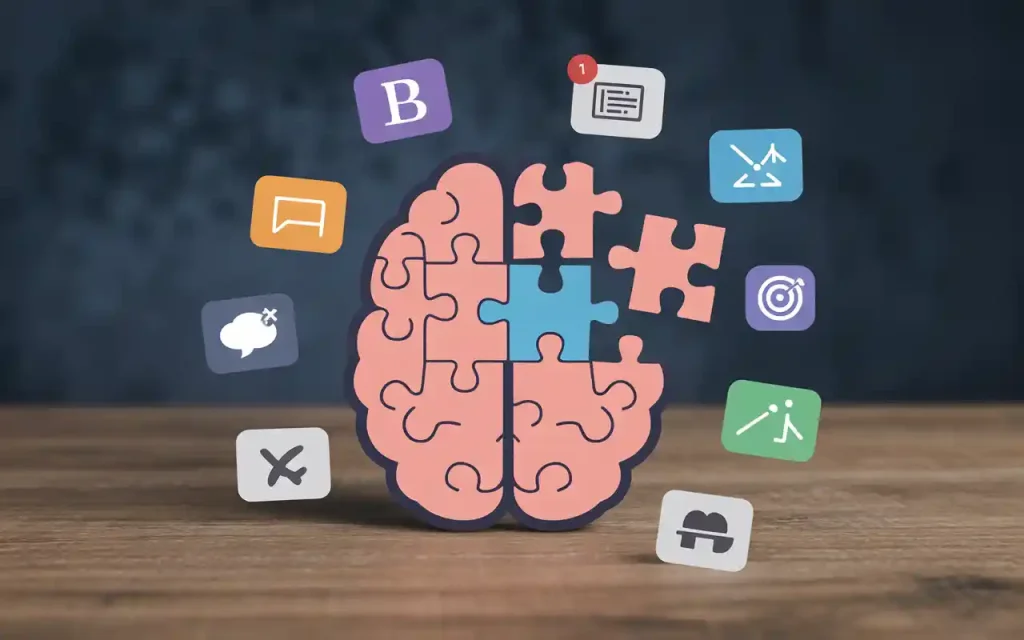
When you multitask, your brain struggles to store and recall information.
- Weaker short-term memory: Multitasking disrupts your working memory, making it harder to remember details.
- Poor long-term memory: It also affects your ability to store information for the future.
- More forgetfulness: Frequent task-switching leads to confusion and forgetfulness.
- Media multitasking: Using multiple screens at once is linked to weaker memory and attention skills.
Example
If you study while checking your phone, you are less likely to remember what you learned, even if you spend more time “studying.”
Focus and Creativity
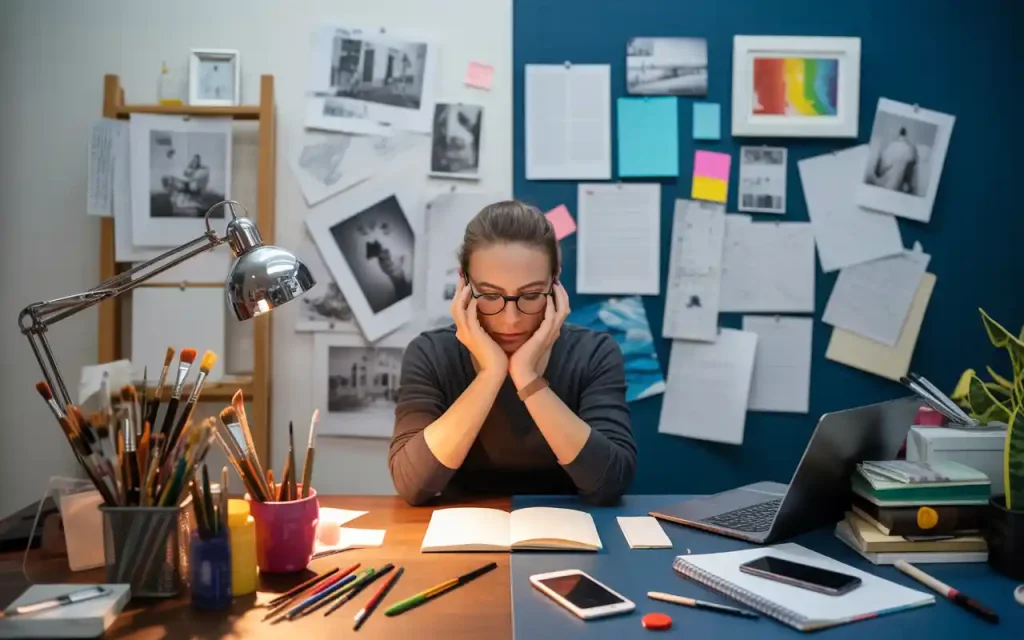
Can Multitasking Ever Help Creativity?
Some research suggests that multitasking can boost creativity in certain situations, but the benefits are usually short-term.
- Shallow vs. deep creativity: Creativity requires deep focus and time to let ideas develop. Multitasking keeps your mind in “shallow waters,” making it hard to reach your full creative potential.
- Light multitasking: In rare cases, light multitasking, like walking while thinking, can help spark new ideas, but only if the tasks do not compete for the same mental resources.
- Idea generation vs. execution: Multitasking may help you come up with ideas, but it makes it harder to turn those ideas into reality.
Creative Professions
Writers, artists, and inventors often need long periods of focus to create their best work. Multitasking can interrupt this process and limit creative breakthroughs.
Focus and Relationships
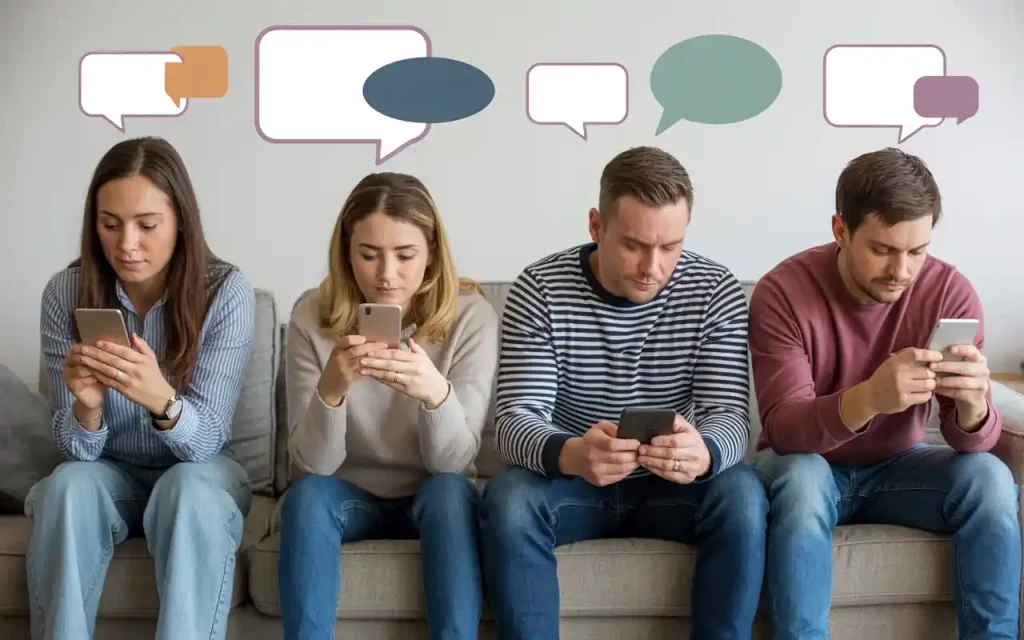
Focus in Communication
Multitasking during conversations, like checking your phone while talking, sends a message that the other person is not important.
- Shallow communication: Multitasking leads to missed emotional cues and shallow conversations.
- Reduced trust: People feel more valued and respected when you give them your full attention.
- Loneliness: Habitual multitasking can make it hard to be present, even with loved ones, leading to loneliness and misunderstandings.
Family and Friends
Giving your full focus to family and friends strengthens your relationships and helps you feel more connected.
Focus in the Workplace

In teams, multitasking can lead to poor communication and less collaboration.
- More errors: Group multitasking increases the risk of mistakes and miscommunication.
- Lower morale: Teams that focus together are more productive, creative, and satisfied with their work.
- Missed goals: When everyone is distracted, it is harder to align on goals and work together effectively.
Leadership and Focus
Leaders who model focused work help their teams stay on track and achieve better results.
Focus and Long-Term Brain Health
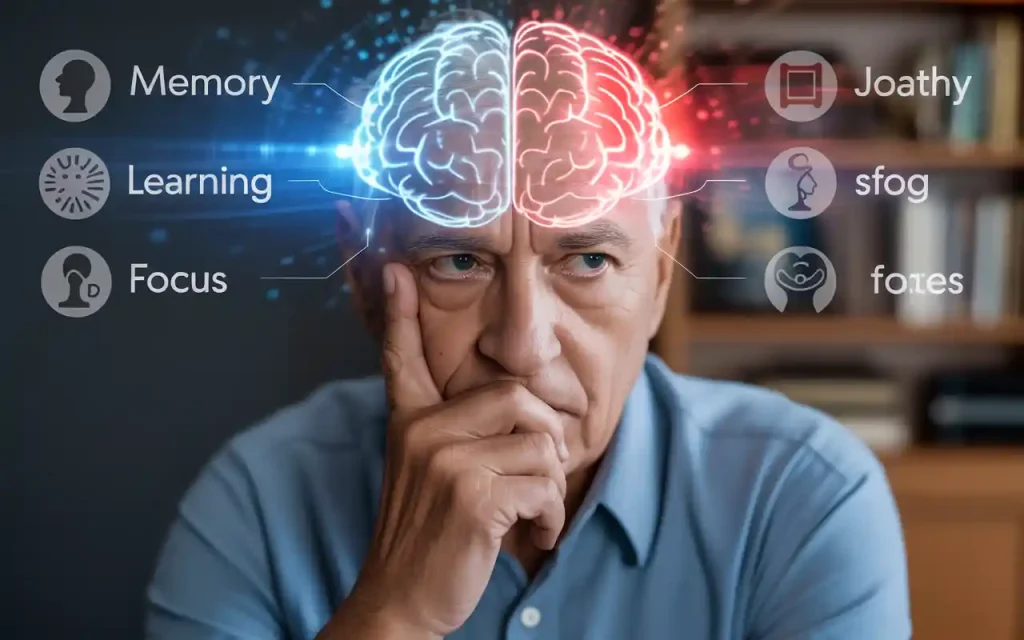
Chronic multitasking can change the way your brain works.
- Decreased working memory: Long-term multitasking is linked to weaker memory and poor executive function.
- Less filtering: The brain becomes less able to filter out distractions, making deep focus almost impossible.
- Cognitive decline: Over time, multitasking can contribute to mental fatigue and cognitive decline.
Protecting Your Brain
Focusing on one task at a time helps keep your brain healthy and sharp as you age.
Effects of Multitasking on Focus and Life
| Aspect | Negative Effects of Multitasking | Positive Effects (if any) | Long-Term Impact |
|---|---|---|---|
| Focus | Decreases, more mistakes, harder to concentrate | None | Chronic distractibility |
| Productivity | Lower output, more errors, longer task completion | None | Reduced work quality |
| Memory | Weaker short-term and long-term memory, more forgetfulness | None | Difficulty learning new things |
| Creativity | Shallow ideas, hard to develop deep insights | Brief idea generation in rare cases | Less innovation, fewer breakthroughs |
| Stress | Higher stress, anxiety, risk of burnout | None | Mental fatigue, health problems |
| Emotional Well-being | Less empathy, more irritability, harder to relax | None | Weaker emotional control |
| Relationships | Shallow communication, reduced trust, loneliness | None | Weaker bonds, misunderstandings |
| Brain Health | Less gray matter, weaker executive function, poor filtering of distractions | None | Cognitive decline, mental fatigue |
| Workplace | Poor teamwork, more errors, missed goals | None | Lower morale, less collaboration |
| Learning | Harder to absorb and retain information, more confusion | None | Poor academic or job performance |
| Decision-Making | Decision fatigue, slower and less accurate choices | None | Weaker problem-solving skills |
| Sleep | Disrupted sleep patterns, trouble falling asleep | None | Chronic tiredness, health issues |
Powerful Tips to Boost Your Focus

Focus by Removing Distractions
- Turn off phone notifications and put your phone away while working.
- Close tabs and apps you do not need.
- Find a quiet place to work and let others know you need uninterrupted time.
- Use noise-cancelling headphones or calming background music without lyrics.
Focus with Simple Routines
- Make a to-do list and finish one task before starting another.
- Use time-blocking: set aside specific times for focused work.
- Try the Pomodoro Technique: work for 25 minutes, then take a 5-minute break.
- Review your progress at the end of each day to stay on track.
Focus and Mindfulness
- Practice meditation or deep breathing to train your mind to focus.
- Regular exercise can also help improve your attention and memory.
- Mindfulness helps you notice when your mind is wandering so you can bring it back to the task at hand.
- Take mindful breaks: step outside, stretch, or simply breathe deeply for a few minutes.
Focus and Healthy Habits
- Get enough sleep and eat healthy foods to support brain function.
- Take care of your mental health by managing stress and setting boundaries.
- Limit screen time, especially before bed, to improve sleep and focus.
- Stay hydrated and take regular movement breaks to keep your mind sharp.
Focus in Social and Work Life
- Set clear boundaries for work and personal time.
- Let others know when you need to focus and ask for their support.
- Schedule regular “focus hours” where you work without interruptions.
- Practice active listening in conversations by putting away devices and making eye contact.
Quotes
- “Focus is the foundation of deep learning, high productivity, and emotional well-being.”
- “Our brains are not designed to handle multiple demanding tasks at the same time.”
- “What we call multitasking is actually rapid task switching, which drains mental energy and scatters our attention.”
- “Each switch leaves behind ‘attention residue,’ making it harder to fully engage with the next task.”
- “The myth of multitasking has become so common that many people don’t realize it’s quietly eroding their ability to focus, learn, and connect with others.”
- “Science is clear: multitasking destroys your focus, lowers your productivity, and can even harm your mental health and relationships.”
- “If you want to do your best work and feel less stressed, focus on one thing at a time.”
- “Start today—choose focus over multitasking and unlock your true potential!”
Highlighted Points
- Multitasking is actually rapid task switching, not true simultaneous action.
- Task switching drains mental energy and leaves ‘attention residue’ that makes it hard to focus.
- Multitasking can lower productivity by up to 40 percent and increases mistakes.
- Chronic multitasking changes the brain, making it harder to filter distractions and focus deeply.
- Multitasking raises stress, increases anxiety, and can lead to burnout and sleep problems.
- Memory suffers when multitasking, making it harder to remember details and learn new things.
- Creativity requires deep focus; multitasking keeps the mind in ‘shallow waters’ and limits creative breakthroughs.
- Relationships are weakened by multitasking, leading to shallow communication and less trust.
- Long-term multitasking is linked to cognitive decline and weaker executive function.
- Simple routines, mindfulness, and removing distractions can help restore and boost focus.
- Managing multiple priorities is about planning, not doing everything at once.
- Focus is a superpower that leads to better work, less stress, and greater satisfaction in life
Frequently Asked Questions
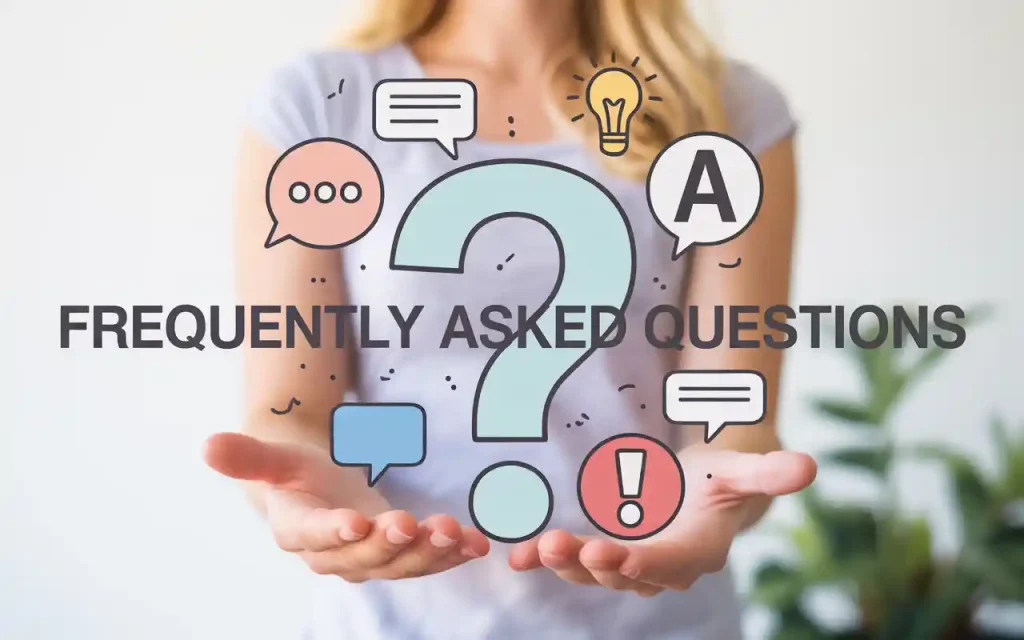
1. What is multitasking, really?
Multitasking is not doing several things at once, but quickly switching your attention between tasks. This process is called task switching, and it uses up more mental energy than focusing on one thing at a time.
2. Why does multitasking feel productive?
Multitasking can create a sense of busyness and accomplishment, but studies show it actually reduces efficiency and increases mistakes. The brain can only focus deeply on one complex task at a time.
3. How does multitasking affect memory?
Switching between tasks disrupts both short-term and long-term memory. You are less likely to remember details and more likely to forget important information when multitasking.
4. Can multitasking harm your mental health?
Yes. Multitasking raises stress levels, increases anxiety, and can lead to burnout. The constant demand to switch tasks makes it harder to relax and recharge.
5. Are there any benefits to multitasking?
Multitasking may help with simple, routine tasks that don’t require much thought, like folding laundry while listening to music. For complex or creative work, it almost always reduces performance.
6. Is anyone naturally good at multitasking?
Research shows that only a very small percentage of people—about 2-3%—are “supertaskers” who can handle multiple tasks without a drop in performance. Most people perform worse when they try to multitask.
7. How can I improve my focus in a world full of distractions?
Turn off notifications, set aside specific times for focused work, and practice mindfulness or deep breathing. Creating routines and boundaries helps your brain stay on track.
8. What’s the difference between multitasking and managing multiple priorities?
Managing multiple priorities means planning and organizing tasks, but focusing on one at a time. Multitasking is trying to do them all at once, which leads to lower quality and more mistakes
Conclusion
Science is clear: multitasking destroys your focus, lowers your productivity, and can even harm your mental health and relationships. If you want to do your best work and feel less stressed, focus on one thing at a time. Your brain will thank you, and you will get more done with less effort and more joy.




